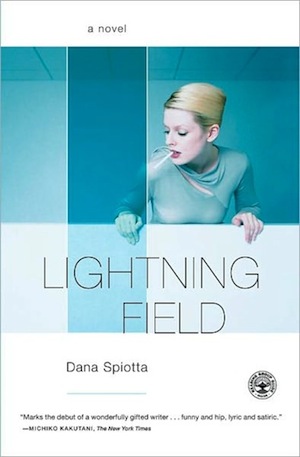*A New York Times Notable Book*
“Los Angeles is the air we all breathe in this wonderfully funny, accomplished, and far-reaching first novel about our consumer colossus and the human products it makes and shapes.”
— Don DeLillo
“A writer with an unerring ear for how people talk and try and cope today.”
— Michiko Kakutani, The New York Times
“Spiotta has a gift for evoking the way lucidity comes in flashes, like something glimpsed at the edge of a movie frame, making us want to see more. “
— The New Yorker
“The hippest, funniest, most urbane and heartfelt account of life west of the 101 and north of the 10 to come along in years. Satiric but not cruel, authentic but not maudlin.”
— Thomas Curwen, The Los Angeles Times
“In this wonderful debut, Spiotta lays bare the modern consumer society.”
— Dylan Foley, Milwaukee Journal Sentinel
“Cooly blazing and beautiful first novel… She is a shockingly good sentence writer; she’s also a darkly hilarious writer.”
— Heidi Julavits, American Book Review
“A wise and artful debut.”
— Esquire
“A striking, original and very funny debut.”
— Publisher’s Weekly
LIGHTNING FIELD
Mina lives with her screenwriter husband and works at her best friend Lorene’s highly successful concept restaurants, which exploit the often unconscious desires and idiosyncrasies of a rich, chic clientele. Almost inadvertently, Mina has acquired two lovers. And then there are the other men in her life: her father, a washed-up Hollywood director living in a yurt and hiding from his debtors, and her disturbed brother, Michael, whose attempts to connect with her force Mina to consider that she might still have a heart — if only she could remember where she had left it.
Between her Spiritual Exfoliation and Detoxification therapies and her elaborate devotion to style, Lorene is interested only in charting her own perfection and impending decay. Although supremely confident in a million shallow ways, she, too, starts to fray at the edges.
And there is Lisa, a loving mother who cleans houses, scrapes by, and dreams of food terrorists and child abductors, until even the most innocent events seem to hint at dark possibilities.
Lightning Field explores the language tics of our culture — the consumerist fetishes, the self-obsession and the fleeting possibility that you just might have gotten it all badly wrong. In funny, cutting, unsentimental prose, Spiotta exposes the contradictions of contemporary lives in which “identity is a collection of references.” She writes about overcoming not just despair but ambivalence.
Playful and dire, raw and poetic, Lightning Field introduces a startling new voice in American fiction.
